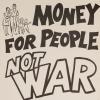Over the next few weeks, you’re going to encounter an astonishing amount of animosity towards the possibility of Monroe allowing the sale of alcohol. These parties will encourage you to do what they believe is “right”, with their admonishment stemming from religious doctrine of various denominations. They will warn you of the horrors that will accompany acceptance; alcohol will be a harbinger of wickedness and sin, reducing our town to a cesspool of unimaginable evil. No good can come from the bottle, and anyone who believes otherwise is ultimately a fool. To back booze is unforgivable.
Do you want to know what one of the best things about our country is? It’s the right to believe whatever you want to believe. Our founding fathers were so gung-ho about this principal that they stuck it right at the beginning of our Bill of Rights.
I’ll spare you the full First Amendment text, but since some other voices of concern that have recently been published within this paper are adamant about including literature that backs their case, allow me to provide some of my own:
“Believing with you that religion is a matter which lies solely between Man & his God, that he owes account to none other for his faith or his worship, that the legitimate powers of government reach actions only, & not opinions…”
What you just read was written by Thomas Jefferson in 1802. It’s an excerpt from a letter Jefferson penned in support of the Danbury Baptist Association’s concerns over Connecticut’s constitution lacking any sort of protection against the governing body violating their religious liberties. The jist of it is, Jefferson and the Baptists wanted to make sure that government could, in no way, play a part in advocating the agenda of one particular body of beliefs over another. In fact, Jefferson’s words here are considered a major milestone in the separation between church and state.
Why bring this up? Because it is evidence that one of the greatest leaders America has ever known had a very real issue with the idea of government, in any shape, form, or fashion, allowing religious beliefs to affect the way we run our country. And there are many, many other examples where those who were instrumental in birthing our nation showed reluctance to allow church and state to mingle (but there’s not enough room for that here).
Here’s what this boils down to: the beliefs of a few should not dictate the actions of the many.
If you believe that alcohol is wrong, that’s fine. You are well within your right to take that notion to heart, and any proud American will stand up and defend said right. But, if you fall into the temperance camp, ask yourself this: do you believe anyone has the right to come into your home and take away any guns that you might own? If Johnny Law thinks you have committed some sort of crime, how would you feel about the police coming and searching your property without a warrant? And, if you ended up in jail for something you didn’t do, isn’t it a given that you deserve a lawyer? And a fair trial?
All of the situations listed here involve rights guaranteed by, you guessed it: our Bill of Rights. So, if you agree with what you read, and hold these things to be unalienable privileges guaranteed to every American citizen due to the fact that they’re written within our Constitution, you cannot be comfortable with these zealots having such a significant impact on the conversation regarding a possible repeal of these archaic laws. Democrats have no business telling you what type of guns you can own. Feminists have no business telling you that abortion is anything other than murder. How is a preacher telling you that you, a grown adult with the ability to reason and function within society, that you can’t purchase alcohol all that much different?
To be frank, I find it insulting that someone on a pulpit sees fit to try governing the way we live our lives, even if we don’t ascribe to their body of beliefs in the slightest. Even if our tenets do align on some matters, the rhetoric here is condescending: we can’t have alcohol because we don’t know any better. We can’t handle the responsibility that it would entail. We can trust ourselves to make sound, rational decisions when confronted a substance that over 2 billion people worldwide drink on a regular basis. And, as such, we should allow this ill-informed dogma to guide our decision making on a matter that most of the world doesn’t think twice about.
To reiterate: if you think alcohol is wrong, that’s fine. But a “yes” vote isn’t going to send someone with a funnel to your doorstep. You may see it in stores, but no one will force you to pick up a tallboy of Rolling Rock with your kid’s Kit-Kat. And it won’t cause our town to burn to the ground, with only an empty whiskey bottle howling in the ashes. It may not single-handedly revitalize our economy, but we didn’t scoff at the idea of Taco Bell coming in (and I don’t think anyone expected it to be some sort of stimulus package). A business is a business, and if a liquor store pays its taxes and employs several people, isn’t it doing all you can really ask of it? And isn’t it a bit hypocritical to cry foul over liquor stores not contributing an exorbitant amount in tax revenue when churches are considered tax-free entities by the government?
If we come to a vote, don’t let your choice being guided by fear. Don’t vote against what you know is right because someone might turn their nose up at you on Sunday morning. Vote based on fact, not scripture. Vote based on logic, not opinions dictated by maxim. Vote based on faith in people, not faith in divine retribution. Trust me: thousands upon thousands of counties across the United States have made the decision to allow their citizens to purchase alcohol, and you know what? They’re doing just fine.
And we will too. As long as we honor that First Amendment and keep the church away from the voting booth.
















